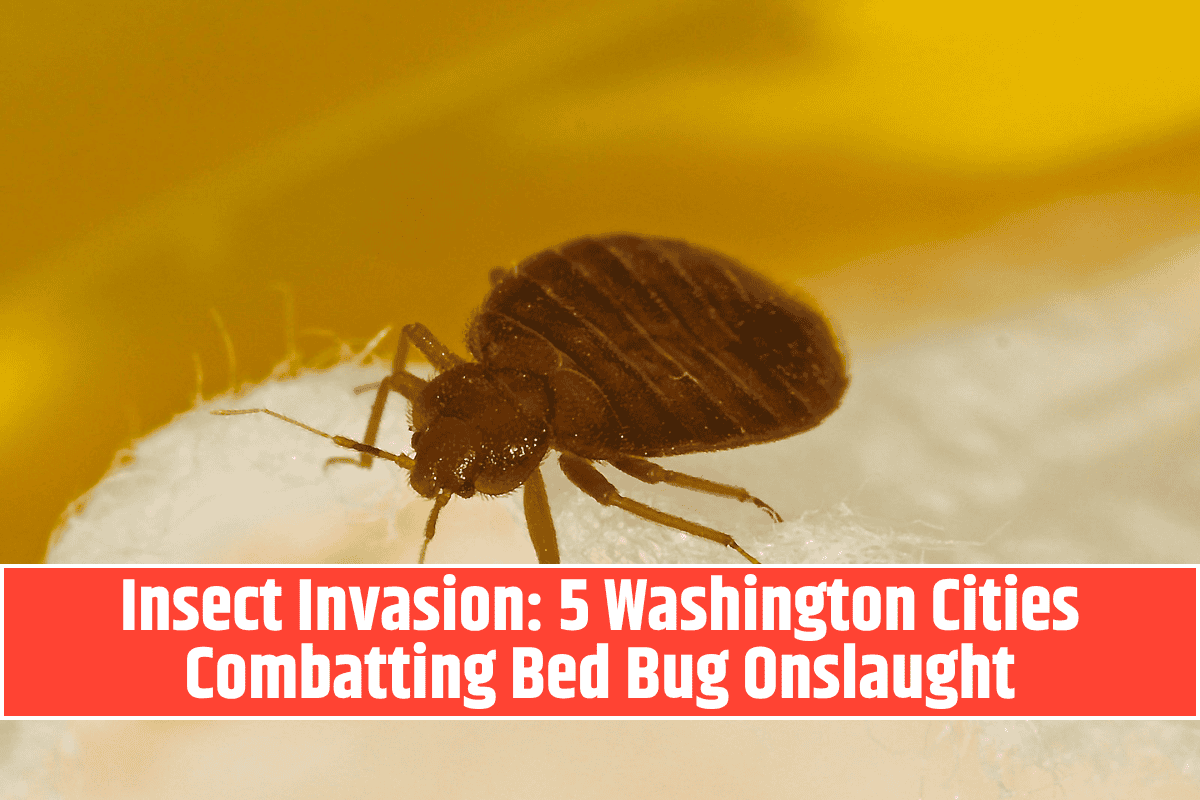Bed bugs are becoming a big problem in Washington State. Cities like Seattle, Spokane, Tacoma, Bellevue, and Everett are now seeing more bed bug infestations than ever before. Recent reports from pest control companies like Orkin and Terminix show a sharp increase in the number of cases across the state in 2025.
With homes, hotels, and apartment buildings affected, both local authorities and residents are taking serious steps to stop the spread.
Let’s take a look at the top five Washington cities dealing with this growing problem and how each city is trying to control it.
Seattle: Washington’s Bed Bug Hotspot
Seattle has become the worst-hit city in Washington for bed bugs. According to Orkin’s 2025 list, it now ranks 39th in the entire country, jumping five spots from last year. The city’s crowded housing areas, busy airport, and large rental population make it easy for bed bugs to spread.
Pest control companies in Seattle are getting more calls from apartments, hotels, and shared living spaces. In response, the city has increased awareness campaigns and support for residents facing infestations.
Spokane: Rising Numbers, Growing Concern
Spokane is not in the national top 50 yet, but local pest experts say the number of cases is rising quickly. Older houses and regular travel between cities make it easier for bed bugs to spread in Spokane.
The local health department has started sharing information through community events and online guides, especially for building managers and landlords of multi-family homes.
Tacoma: Infestations Along the Commuter Corridor
Tacoma is also seeing more bed bug complaints. Though not nationally ranked, the city is closely connected to Seattle by a common commuter route. Many people travel daily between the two cities, which increases the risk of bringing bugs from one place to another.
To tackle the problem, local officials are working with landlords and offering free workshops where tenants can learn to spot and prevent infestations.
Bellevue: High-End Areas at Risk
Bellevue, known for its modern housing and tech industry, is also at risk—especially in luxury apartments and hotels. Because of its strong connection to international travel and business, bed bugs are often carried in from outside.
In response, property managers are introducing stricter inspection rules. Some apartment complexes even require mattress covers and regular pest control checks as a precaution.
Everett: A Growing Threat in Public Spaces
Everett is also facing a noticeable rise in bed bug cases. The city’s public health departments are focusing on shelters and areas with more transient residents. They’re working closely with pest control services to spread awareness and share resources with people who may not have permanent housing.
Community outreach and prevention steps are being taken to stop further spread.
What Cities Are Doing to Fight Back
Washington cities are not ignoring this issue. They are actively trying to reduce bed bug infestations through different steps:
Public Awareness Campaigns
Cities like Seattle and Tacoma are running educational campaigns. They distribute booklets and flyers to help people identify bed bugs early and learn what to do if they find them.
Supportive Housing Policies
Seattle has set new rules requiring landlords to act quickly when tenants report bed bugs. Landlords must also give tenants information about how to prevent and deal with bed bugs.
Regular Inspections in High-Risk Areas
Places like Bellevue and Everett are making regular inspections mandatory in hotels, apartments, and shelters. Preventive pest control treatments are also being used.
Working with Experts
Local governments are teaming up with pest control companies like Orkin and Terminix. This helps them stay updated on trends and act quickly if cases increase in any area.
Bed bugs are a growing challenge in Washington State. Seattle leads in the number of cases, but cities like Spokane, Tacoma, Bellevue, and Everett are also seeing a rise in infestations. The good news is that local authorities and communities are taking the issue seriously.
From spreading awareness to tightening housing rules, these cities are working together to stop the spread of these pests. With the right efforts, residents can better protect their homes and avoid future infestations.
[1] https://www.orkin.com/press-room/worst-cities-for-bed-bugs-annual-rankings
[2] https://www.terminix.com/blog/whats-buzzing/top-bed-bug-cities/
[3] https://www.mypmp.net/top-50-most-bed-bug-infested-cities-in-the-u-s-revealed-by-terminix/












